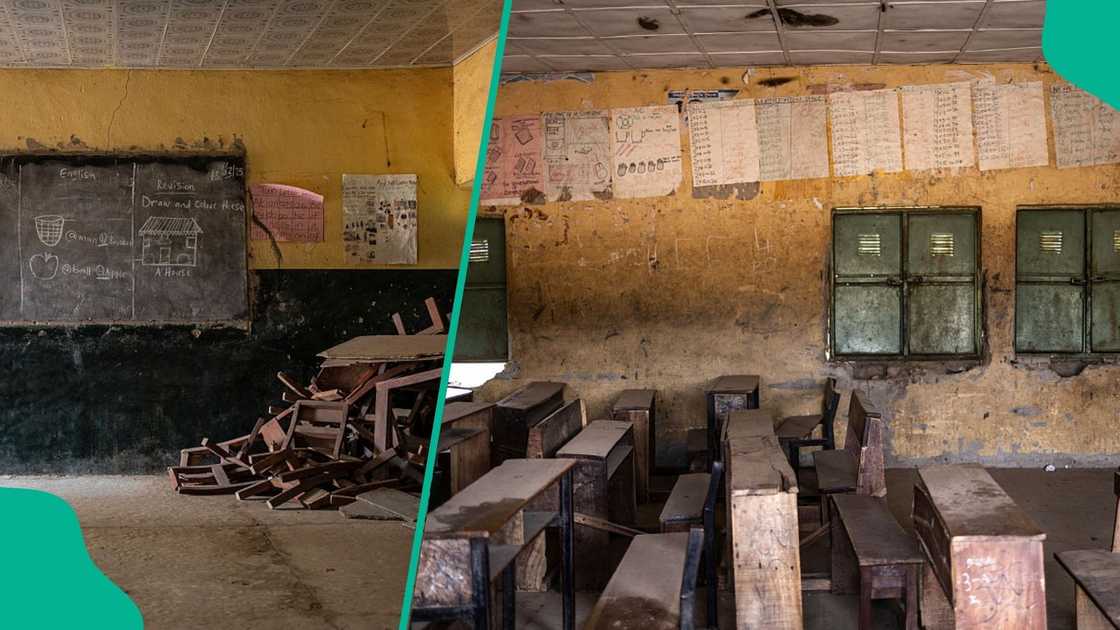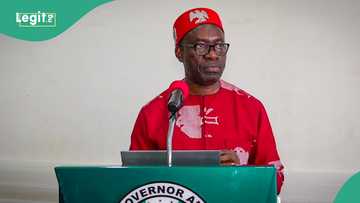New Photos Show the Nature of Nigerian Schools Since US Stopped Its Aid to Nigeria
- The withdrawal of US aid has forced schools in northeast Nigeria to let go of 700 pupils and 20 teachers, leaving children vulnerable in conflict zones
- Closure of USAID, condemned by former Presidents Obama and Bush, has disrupted education, healthcare, and development programmes worth $602.95 million
- AP photos show the human toll, with empty classrooms and displaced children facing uncertain futures in Borno state
The sudden withdrawal of United States aid has left schools in Nigeria’s northeast struggling to survive, with hundreds of students and teachers already displaced.
In Borno state, an Associated Press photo investigation revealed that one of the schools worst hit by the aid freeze has had to let go of at least 700 pupils and 20 teachers, cutting off education opportunities for children who had already suffered the trauma of Boko Haram’s violence.

Source: Getty Images
Boko Haram, which has waged an insurgency since 2009 in a bid to impose Islamic law, has long targeted schools, forbidding Western education.
The extremist group came to international attention in 2014 after abducting over 270 schoolgirls from Chibok, Daily Mail reported.
USAID closure sparks global criticism
The development follows the closure of the United States Agency for International Development (USAID), after President Donald Trump moved to dismantle the body earlier this year.
More than 80% of the agency’s programmes were scrapped in March, with the remainder absorbed by the US State Department on July 1, 2025.
Former US Presidents Barack Obama and George W. Bush condemned the closure in a virtual conference with USAID workers, joined by U2 singer Bono.
Bush said:
“You’ve showed the great strength of America through your work — and that is your good heart.”
Obama also lamented the decision, stressing that dismantling the agency undermines America’s global leadership in humanitarian work.
Nigerian education and health sectors at risk

Source: Twitter
The freeze on aid has jeopardised the $602.95 million earmarked for Nigeria in 2025, throwing into disarray crucial programmes in healthcare, governance, economic growth, and security.
Education has been one of the hardest hit sectors, with the suspension forcing schools in conflict-affected regions to cut staff and reduce enrolments.
Health services have also been left vulnerable, as 89.27% of the grant was allocated to health programmes, including $368 million for HIV/AIDS under the Global Health Programme.
Funds were also set aside for malaria control, tuberculosis treatment, maternal health, and reproductive health.
Photos reveal human toll
The AP photos released this week show classrooms once filled with hopeful faces now sitting empty, as displaced children wander through dusty compounds or return to homes where their parents can no longer afford to send them to school.
Stakeholders call for review of education system
Previously, Legit.ng reported that Oladotun Hassan, a legal practitioner and president of the Yoruba Council Worldwide, has called for a review of Nigeria's education system, noting that the time spent acquiring knowledge in the country is too much.
The legal icon, in an exclusive interview with Legit.ng, explained that it won't be a bad idea if secondary school students can write their West African Senior School Certificate Examination (WASSCE) while in SS2, rather than spending six years before writing.
Proofreading by James Ojo, copy editor at Legit.ng.
Source: Legit.ng




